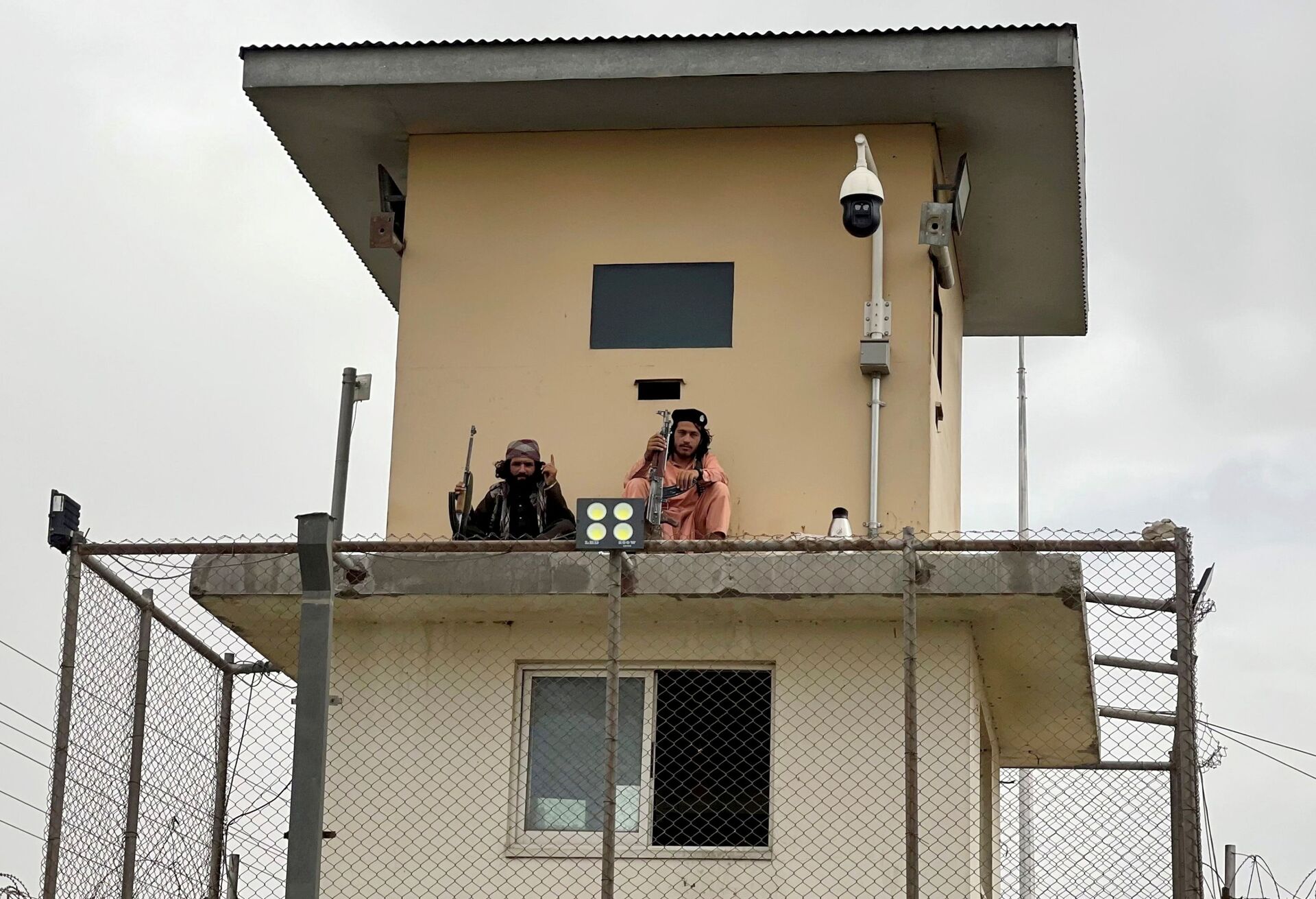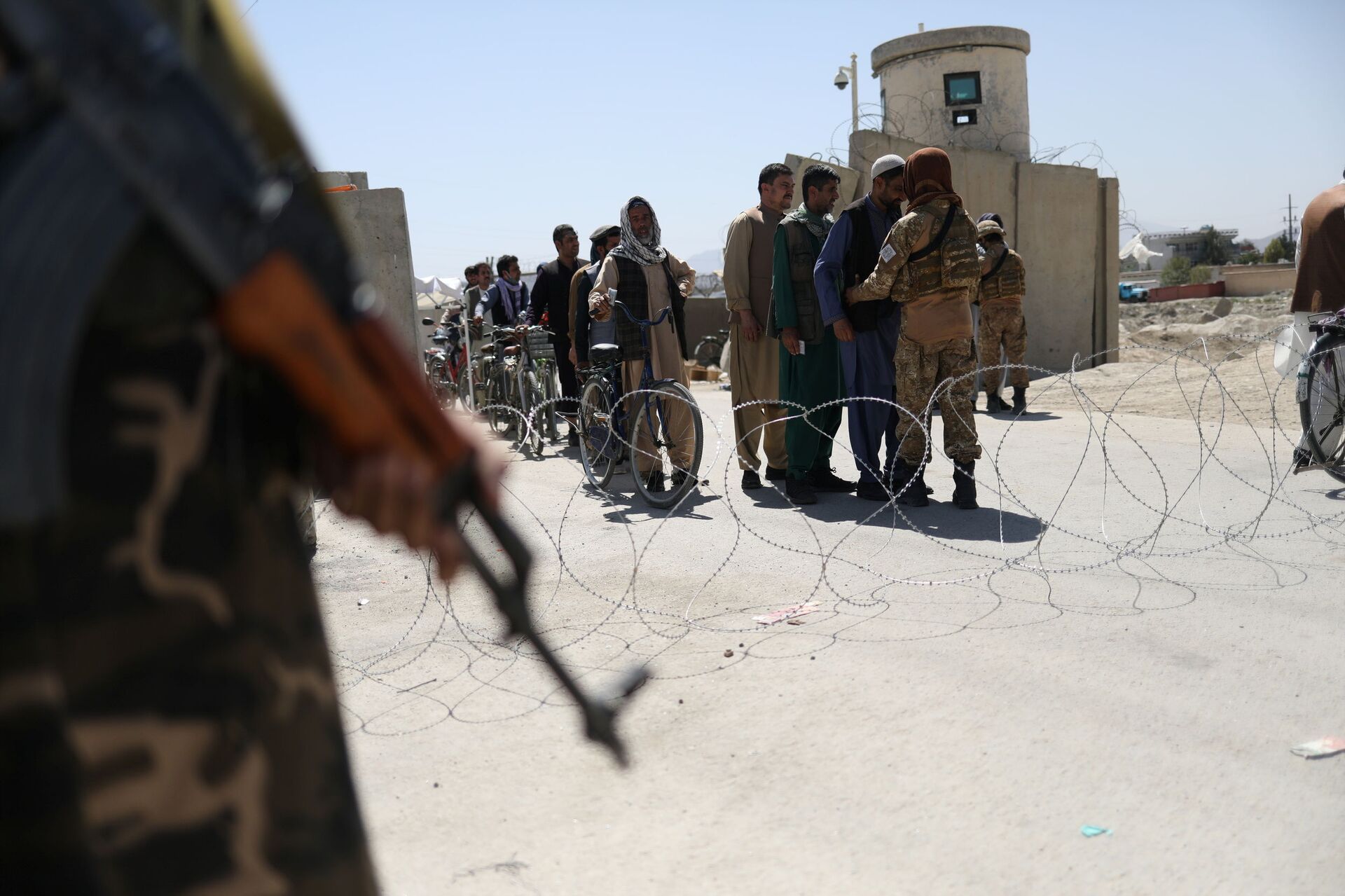Google Reportedly Locked Afghan Gov't Accounts to Stop Taliban Using ‘Digital Trail' for Reprisals
12:40 GMT 06.09.2021 (Updated: 20:25 GMT 19.10.2022)

© Flickr / Kristina Alexanderson
Subscribe
When the Taliban* held their first press conference in Kabul after completing their swift offensive in the wake of US and NATO troop withdrawal, the Islamist group produced a flurry of promises about women's rights, security and amnesty to Afghan officials and soldiers, however there have been increasing reports of detentions and disappearances.
Alphabet's Google has temporarily locked down an unspecified number of Afghan government e-mail accounts, reported Reuters.
An unnamed former government employee was cited by the outlet as saying the Taliban had ordered him last month to save the data on the servers of the ministry he used to work for, but he refused.
“If I do so, then they will get access to the data and official communications of the previous ministry leadership," said the source, who is now in hiding, according to the outlet.
According to mail exchanger records, some two dozen Afghan government bodies, including the ministries of finance, industry, higher education and mines, used Google's servers when handling official e-mails. The same applies to Afghanistan's office of presidential protocol, says the publication.

Members of Taliban forces sit at a security tower of the interior ministry in Kabul, Afghanistan August 17, 2021.
© REUTERS / STRINGER
In a statement on September 3, Alphabet's Google stopped short of acknowledging that it had instructed the lockdown, while conceding that the company was monitoring the situation in Afghanistan and "taking temporary actions to secure relevant accounts".
The same publicly available records show that Microsoft Corp's e-mail services were also used by the Ministry of Foreign Affairs and the Presidency, besides other Afghan government agencies. No clarification has been provided as to whether the software company is taking measures to prevent data from falling into the hands of the Taliban. There has not yet been any official comment on the report from Microsoft.
Digital Paper Trail
This comes as there are growing concerns that both former officials of the Western-backed Afghan government, that collapsed as Taliban swept into Kabul on August 15, and the frantically departing western forces left a tell-tale digital paper trail.
Despite Taliban assurances of amnesty to Afghan officials and soldiers who aided the western troops during their 20-year presence in the South Asian country, there have been increasing reports of reprisals against former government workers.
Despite Taliban assurances of amnesty to Afghan officials and soldiers who aided the western troops during their 20-year presence in the South Asian country, there have been increasing reports of reprisals against former government workers.
If the militants were to get their hands on the former government’s databases and e-mails, it would provide them with information about employees of ministers, government contractors, and foreign partners.
"It would give a real wealth of information… Just even having an employee list on a Google Sheet is a big problem," said Chad Anderson, a security researcher with Internet intelligence firm DomainTools, was cited by Reuters as saying.
He added that intelligence drawn from such a digital source "may be far more valuable to a fledgling government than old helicopters".
Since the Taliban's takeover of Afghanistan, there have been reports highlighting concerns that biometric databases might be used to hunt down those deemed “traitors” or enemies. The Times cited reports of detentions and disappearances, as well as executions. The Islamist militants were going door-to-door seeking out "collaborators", stated a confidential document by the RHIPTO Norwegian Centre for Global Analyses.
"There are a high number of individuals that are currently being targeted by the Taliban and the threat is crystal clear," Christian Nellemann, who heads the group behind the report, was cited as telling the BBC.

Taliban members pat down workers leaving the military airfield in Kabul, Afghanistan, September 5, 2021
© REUTERS / WANA NEWS AGENCY
On August 24, the UN High Commissioner of Human Rights Michelle Bachelet said the agency had received “harrowing and credible reports” of “summary execution of civilians and combat members of the Afghan national security forces” by the Taliban in Afghanistan.
As the Taliban swept across Afghanistan in mid-August, reports surfaced that US military biometric devices used to collect data such as iris scans, fingerprints, and facial images had been seized. This prompted fears the machines could be used to help identify Afghans who supported coalition forces.
“I wouldn’t be surprised if they looked at the databases and started printing lists based on this ... and now are head-hunting former military personnel,” a source was cited as saying by MIT Technology Review.
*A terrorist group outlawed in Russia and many other countries.

